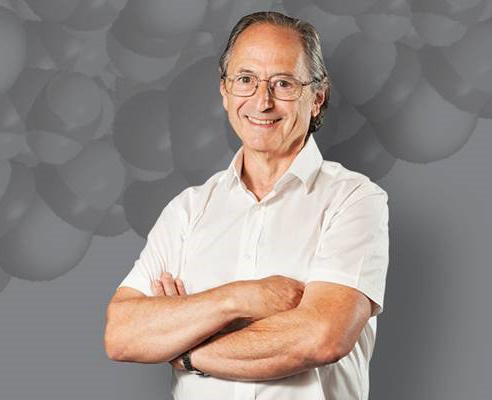Latest News Archive
Please select Category, Year, and then Month to display items
04 October 2024
|
Story Dr Cindé Greyling
|
Photo Supplied
 Scan the QR Code to unlock 30 days of exciting challenges to enhance your mental well-being.
Scan the QR Code to unlock 30 days of exciting challenges to enhance your mental well-being.
During October this year, the University of the Free State (UFS) Department of Student Counselling and Development (SCD) invites all staff and students to play an active part in their own mental health. Every day. You can do one small thing each day to improve your mental health. That is why the campaign is called DoDay – do something today and make it a do
day.
For 30 days, doable mental health activities will be shared on the UFS and SCD Instagram and Facebook pages. You will be invited to participate in the activity and to share your experience online. We encourage you to take up the challenge and share the skills for better mental health.
Be successful
As we approach the mid-year exam when staff and students are experiencing added pressure and anxiety, it is the perfect time to dedicate 10 to 15 minutes daily to your mental health. Each week we will focus on five different mental health building blocks: social wellness, emotional wellness, intellectual wellness, physical wellness, and spiritual wellness. By participating in the different activities each day, you will cover all the different wellness areas.
Be informed
During the campaign, we will also release insightful podcast interviews with experts who share their personal and professional experiences with each wellness area. It is no secret that communities are stronger together. Let us all work towards collectively improving our mental well-being and supporting one another on this journey.
Be happy
Improved mental health supports your professional and academic performance. It also helps you to make better decisions and enjoy life more. Improving your mental well-being has never been easier than following the DoDay calendar. You will receive clear guidelines on what to do each day, and you can mark off your progress and share your activities as you go.
Be a DoDay-er
Remember that maintaining mental well-being is like brushing your teeth, so we recommend it daily! Join the UFS Mental Health DoDay drive and take one small daily action for 30 days towards better mental health. Download your 30-day DoDay calendar – and remember to share and inspire others. Make every day a Mental Health DoDay
Nobel Laureate for Chemistry to visit UFS
2017-10-28

Prof Michael Levitt will be hosted by the UFS from
14 to 16 November 2017, where he will present the
first lecture in the Vice-Chancellor’s
Prestige Lecture Series.
Photo: Supplied
It is a great honour for the University of the Free State (UFS) to host Prof Michael Levitt, recipient of the 2013 Nobel Prize for Chemistry, which he shares with Marti Karplus and Arieh Warshel.
The trio received the Nobel Prize for their development of multiscale models used for complex chemical systems. “Being awarded the Nobel Prize is a unique and marvellous experience that no one can prepare for or could in any way know what to except,” said Prof Levitt during his 2013 Nobel Lecture at the Stanford University School of Medicine.
First lecture in Vice-Chancellor’s lecture series
The South African-born Nobel Laureate and Academy of Science of South Africa (ASSAf) Visiting Scholar will present the first lecture, Birth and Future of Multiscale Modelling of Macromolecules, in the Vice-Chancellors Prestige Lecture Series at the UFS on 14 November 2017. Prof Levitt is well-known for developing approaches which predict macromolecular structures.
He is one of many distinguished academics invited annually by ASSAf to deliver lectures as part of the Distinguished Visiting Scholars’ Programme, presented by ASSAf at universities across the country.
Pioneer in research of molecular dynamics
Prof Levitt is a biophysicist and a professor of Biology at Stanford University. He was one of the earliest researchers to conduct research on molecular dynamics stimulations of DNA and proteins. “My post-prize ambitions are twofold and probably inconsistent: (1) Work single-mindedly as I did in the mid-1970s on hard problems, and (2) Help today’s young scientists gain the recognition and independence which my generation enjoyed,” said Prof Levitt.